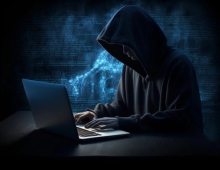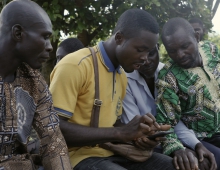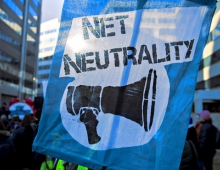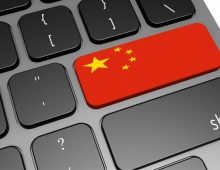
New Tool Aims to Bypass Internet Censorship
A new tool aimed at circumventing Internet filters used by some governments was released Friday, offering hopes for freer access to information for activists, journalists and others.
The "psiphon" software, developed at the University of Toronto's Citizen Lab, offers more potential for bypassing government censors than most other tools because it allows simple access and leaves no traces on the computers of people who use it, developers say.
Psiphon, released through the Open Net Initiative, a project of four universities in the United States, Canada and Britain, "operates on private social networks of trust," said Ronald Deibert, director of Citizen Lab.
Deibert said psiphon functions like a "virtual private network" used by many companies and organizations to securely transmit data, but without the cumbersome installation of VPNs.
"We've designed it to be very easy to use," Deibert said, noting that other software aimed at maintaining anonymity on the Internet can be complex to use.
"The user does not have to install anything. They connect to the software with a unique user name and password and website address."
Because the system relies on a connection through a proxy computer outside the country, "there is nothing authorities can block," Deibert said.
With psiphon, a user in a country such as China, which limits the information that can be seen on the Internet, connects to a proxy in another country that allows them to bypass restrictions.
Even if authorities located someone using the bypass tool, they would only be able to shut down a single "node" or contact and this would not affect others.
And because the data is encrypted over the connection, he said authorities can only see there is a connection to another computer. To read the data, censors "would have to have sophisticated code-cracking technologies at their disposal, and it would take a long time."
The psiphon software itself is downloaded to a computer outside the repressive country, making it an access point. As a result, its benefits may be limited to people who have contacts outside their country.
Deibert said the small networks using this would likely include expatriate communities of Chinese, Iranians or others in the West. But it could also include journalists traveling to certain countries or people involved in non-governmental activist organizations.
Julien Pain of the human rights group Reporters Without Borders said psiphon is "a very good tool" for those seeking to bypass censorship in hardline regimes.
But Pain said psiphon might be limited to wealthier people who have family or friends outside the country.
"The everyday Internet user in China probably won't know anyone in the West," he said.
"It's very innovative but no software can solve the censorship problem."
Activists say Internet blocking has spread from a handful of countries like China and Iran to as many as 40 governments, including in Africa.
Psiphon, released through the Open Net Initiative, a project of four universities in the United States, Canada and Britain, "operates on private social networks of trust," said Ronald Deibert, director of Citizen Lab.
Deibert said psiphon functions like a "virtual private network" used by many companies and organizations to securely transmit data, but without the cumbersome installation of VPNs.
"We've designed it to be very easy to use," Deibert said, noting that other software aimed at maintaining anonymity on the Internet can be complex to use.
"The user does not have to install anything. They connect to the software with a unique user name and password and website address."
Because the system relies on a connection through a proxy computer outside the country, "there is nothing authorities can block," Deibert said.
With psiphon, a user in a country such as China, which limits the information that can be seen on the Internet, connects to a proxy in another country that allows them to bypass restrictions.
Even if authorities located someone using the bypass tool, they would only be able to shut down a single "node" or contact and this would not affect others.
And because the data is encrypted over the connection, he said authorities can only see there is a connection to another computer. To read the data, censors "would have to have sophisticated code-cracking technologies at their disposal, and it would take a long time."
The psiphon software itself is downloaded to a computer outside the repressive country, making it an access point. As a result, its benefits may be limited to people who have contacts outside their country.
Deibert said the small networks using this would likely include expatriate communities of Chinese, Iranians or others in the West. But it could also include journalists traveling to certain countries or people involved in non-governmental activist organizations.
Julien Pain of the human rights group Reporters Without Borders said psiphon is "a very good tool" for those seeking to bypass censorship in hardline regimes.
But Pain said psiphon might be limited to wealthier people who have family or friends outside the country.
"The everyday Internet user in China probably won't know anyone in the West," he said.
"It's very innovative but no software can solve the censorship problem."
Activists say Internet blocking has spread from a handful of countries like China and Iran to as many as 40 governments, including in Africa.





















